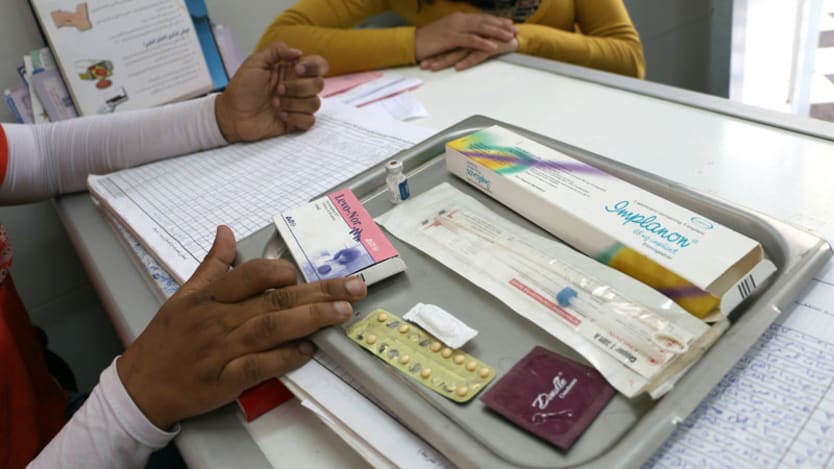
WASHINGTON — The U.S. government’s overall grade on sexual and reproductive health and rights in its global health assistance dropped from a B in 2016 to a C in 2017, according to a new index published Wednesday by the Washington, D.C.-based Center for Health and Gender Equity, or CHANGE.
“We hope that this is a tool for advocates and for governments alike to engage and help make global health assistance the best that it can be.”
— Bergen Cooper, director of policy research, CHANGEThe CHANGE index examines policies and funding on SRHR from six federal government actors: the White House, Congress, USAID, the Department of State, the Department of Defense, and the Department of Health and Human Services. Each department is graded on the three separate categories of HIV/AIDS, maternal and child health, and family planning.
Grades ranged from an F for the White House on the family planning indicator to an A for the U.S. Agency for International Development on HIV/AIDS work.
The interactive index, which intends to keep the U.S. government accountable for its $10.8 billion in global health assistance, can be explored by agency and category for 2016 and 2017. This is the first publication of the index, although it includes data and grades for both years. Entities are graded based upon policies that were enacted, maintained or repealed in a given calendar year, their budgets, and the transparency of that information.
“The SRHR index is a roadmap for how global health assistance can best promote sexual and reproductive health and rights,” said Bergen Cooper, director of policy research at CHANGE. “We hope that this is a tool for advocates and for governments alike to engage and help make global health assistance the best that it can be.”
USAID received the highest score of any U.S. actor, improving its score from a B+ in 2016 to an A- in 2017. CHANGE attributed this improvement to the agency’s May 2017 release of its “Acting on the Call” roadmap, which lays out USAID’s strategy to end preventable child and maternal deaths. USAID also received a high mark for continued implementation of positive HIV/AIDS policies and spending funds in a manner highly responsive to needs.
“All policies within this index are graded on cross-cutting issues,” Cooper said. “We grade policy and say ‘is it gender transformative? Is it based in evidence? Is it based in need? And is it situated within internationally recognized human rights norms?’”
The White House received a C-, down from an A- in 2016, due to the implementation of the “global gag rule” and a decision to defund the United Nations Population Fund. Those actions earned the White House an F on the family planning indicator, while higher marks on maternal and child health and HIV/AIDS balanced out the executive score. The White House’s fiscal year 2018 budget recommended high levels of HIV/AIDS funding, earning it a score of A-. It earned a C+ for maternal and child health due to impact from the gag rule.
“None of these positions are about health and evidence. They’re about ideology,” said Terry McGovern, a professor and chair of the Department of Population and Family Health at Columbia University, at a launch event Wednesday.
“We need to be very clear that if we care about the future of countries, their economies, their health, we’ve got to not take this ideological path. So, I think the index will be very helpful in actually educating people that all of this is so siloed and so politicized.”
Congress received a C+, the Department of State got a B-, and the Department of Defense and the Department of Health and Human Services both got a D+.
To compile the index, CHANGE and its partner on the project, the Global Women’s Institute at George Washington University, examined all U.S. government policies touching on sexual and reproductive health and rights issued since the passage of the 1961 Foreign Assistance Act. The team selected the U.S. entities that would be graded based on the role they play in U.S. global health assistance.
CHANGE’s Cooper said that actors are only graded on what is within their control, so the White House’s 2017 imposition of the gag rule does not impact other agencies which have no say over the policy.
“If this SRHR index can be a tool to help with collaboration between civil society and government, then I think it is a success,” CHANGE President Serra Sippel said.
“We’ve already started meeting with the agencies to explain their grade. And the best answer you can get is ‘well, how can I improve my grade?’ We’ve gotten those questions. That’s really exciting.”








